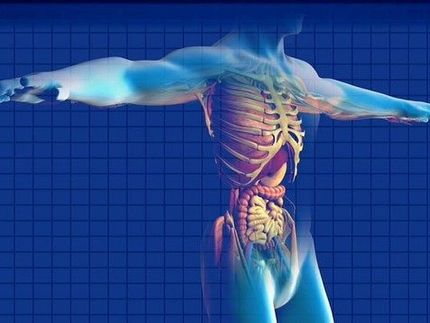New weapon against hepatitis D
Paving the way for drug therapy of the particularly aggressive liver disease
Advertisement
In a multicentre phase 3 trial, researchers at the MHH have demonstrated the efficacy and safety of the drug Bulevirtide, which prevents HD viruses from entering the liver. This paves the way for a drug therapy of the particularly aggressive liver disease.
Infection with hepatitis D virus (HDV) causes the most severe form of chronic, viral hepatitis disease. About ten to 20 million people worldwide are affected. There is currently no cure for the disease, and in the end the only treatment option is often a liver transplant. But now the way is clear for treatment with an effective drug. In a multi-centre study with 150 participants, an international research team led by Professor Dr. Heiner Wedemeyer and Professor Dr. Markus Cornberg from the Department of Gastroenterology, Hepatology, Infectiology and Endocrinology at the Hannover Medical School (MHH) was able to prove that the active substance Bulevirtide significantly reduces the viral load in blood serum and liver and normalises liver inflammation values in many cases. "This means that the prerequisites for full approval of the drug have been met and we can finally give all treating physicians a sharp sword against hepatitis D," says a pleased Clinic Director Wedemeyer, who led the clinical development of the drug. The study was published in the internationally renowned medical journal New England Journal of Medicine.
A particularly aggressive virus
HDV is an incomplete virus and needs the hepatitis B virus (HBV) as a helper to package its RNA inheritance material in its envelope, dock onto the liver cell and penetrate it. A hepatitis D infection therefore also only occurs as a co-infection with a hepatitis B infection. So far, neither hepatitis B nor hepatitis D can be cured. There is a preventive vaccination. However, this no longer helps people who are already infected. HDV also accelerates the course of the disease, and the infectious disease hepatitis D is considered particularly aggressive and can quickly lead to cirrhosis of the liver or liver cancer. "We therefore also call hepatitis D the Devil variant because it is so devilish and malignant," says Clinic Director Wedemeyer.
Based on the positive results of an earlier study, the European Medicines Agency (EMA) had already provisionally approved the drug. "This is extremely unusual because the requirements for full approval are only met with the clinical phase 3 trial. This shows how urgently an effective drug is needed for this severe liver disease," emphasises the liver expert. In the current study, the drug was tested on a larger number of patients to see whether efficacy and safety could be confirmed in many different patients. In addition, possible interactions with other medicines were investigated.
Entry into liver cell blocked
Bulevirtide was developed at Heidelberg University Hospital and the German Centre for Infection Research (DZIF). The drug blocks the docking point for the HBV envelopes on the liver cell. Since this is now occupied, the HD viruses can no longer enter the cell. Patients who are already infected also benefit from this: the drug protects the newly formed liver cells from HDV infection, while at the same time cells that are already infected are destroyed by the immune system. The virus thus lacks its basis of existence, because for its continued existence in the body it must always infect new liver cells.
"We tested the antiviral activity on 150 patients who were infected with both HBV and HDV," says Professor Cornberg. "Of these, just under half had already developed liver cirrhosis, i.e. scarred liver tissue." Those affected were injected with the drug daily under the skin. The treatment was administered for a total of 144 weeks in the study. Now the "primary endpoint" is reported after 48 weeks of therapy, i.e. the time when the therapy goal is reached. The results of the phase 3 trial show that the concentration of HDV RNA in blood serum and liver decreased significantly. "In addition, we were able to determine that the liver values also improved significantly in most cases," notes the hepatologist and infectiologist. The course of the disease will show how long the patients will have to be treated in the end. The researchers led by Professor Wedemeyer and Professor Cornberg are also investigating this in the EU-funded research project D-Solve. What is important right now is: "A longer therapy is not a problem because the drug has hardly any side effects and is very well tolerated overall," Professor Wedemeyer emphasises. "Bulevirtide is a real gamechanger. We now expect that full approval will also be granted by the European Medicines Agency in the near future."



























































